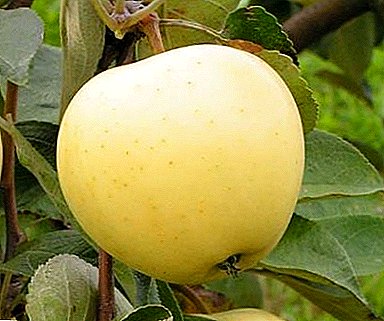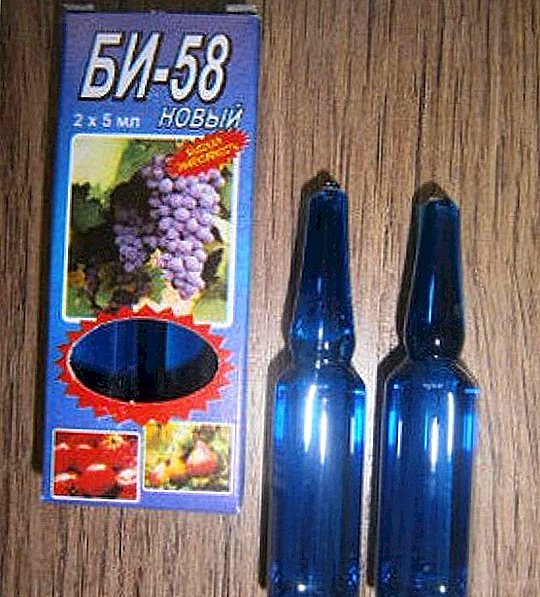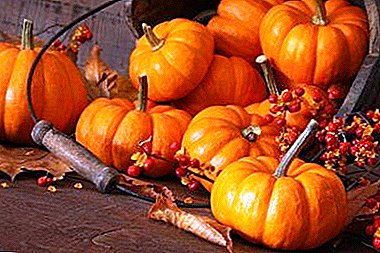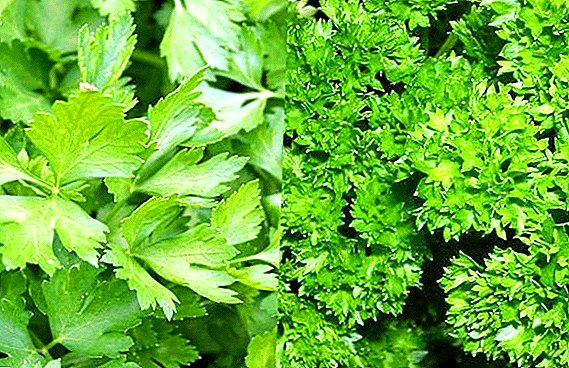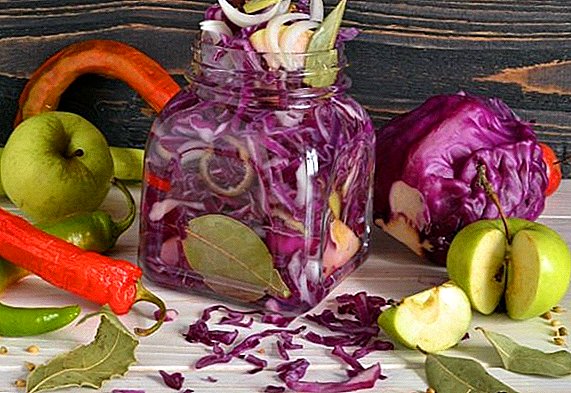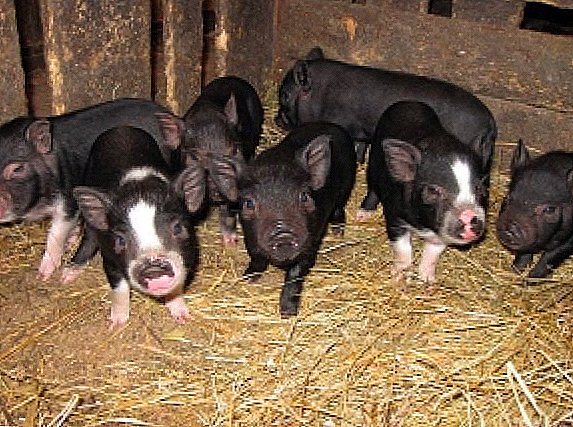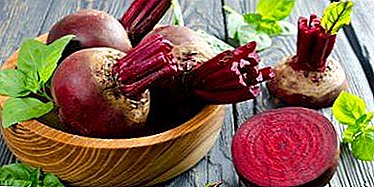
Beetroot is one of the most popular vegetables in our country: it is well stored, grows well in household plots, is inexpensive, has a pleasant taste and a huge amount of useful substances in the composition. Beetroot is present as the main ingredient in a variety of dishes - soups, side dishes, salads, appetizers. But precisely about this root crop for feeding infants there are many doubts - is the vegetable suitable for introducing it into supplements, when and how can children up to one year old be given raw and boiled beets, drinking beet juice?
Why are there restrictions on the use of the product?
With all its useful qualities beets in prikorm do not introduce too early.
 That is, this is not the first vegetable with which it makes sense to introduce a child. Beet has several minuses.
That is, this is not the first vegetable with which it makes sense to introduce a child. Beet has several minuses.
- The root crop is able to accumulate a large amount of nitrates, with which the baby’s body cannot cope.
- Beets - one of the most potentially allergenic vegetables (for details on how allergic to beets are manifested in children and adults and how to fix this problem, read here).
- When used at an early age, beets can cause diarrhea.
From what age can you give supplements?
From how many months or years to begin to give children beets to eat, can an 8 or 10-month-old child eat a vegetable and in what quantity?
In some countries, for example, in India or in the UK, beetroot is given to babies during breastfeeding from the age of six months (you can find out whether beets are allowed for HB and how to properly enter this vegetable into the diet of a nursing mother). Our pediatricians advise not to rush and wait for eight months. Only at this age it is recommended to introduce beetroot puree into the baby’s diet, which is necessarily mixed with other vegetables or cereals.
If the baby tolerates the root well, then gradually you can increase the number to three tablespoons. More than twice a week, beets are not recommended. In this case, the total volume of root vegetables in vegetable puree should be a maximum of 30%.
From the age of 10 months, children can add beets to soups and salads, add them to vegetable casseroles and fritters.
What is better to eat before the year: raw or boiled vegetable?
 Without a doubt, raw root vegetables contain much more vitamins and microelements, but up to a year to give children beets can only be heat-treated, that is, when it is cooked, baked or steamed.
Without a doubt, raw root vegetables contain much more vitamins and microelements, but up to a year to give children beets can only be heat-treated, that is, when it is cooked, baked or steamed.
Raw vegetable has a very strong irritant effect on the intestines of the baby and often causes allergies. In a boiled root crop, some of the vitamins are destroyed, but at the same time the amount of fruit acids that adversely affect the children's digestive system decreases. Plus in the process of cooking most of the nitrates goes into beet broth, which is not eaten. But the most useful elements: fiber, pectin, iron, magnesium, potassium, and many others - are preserved in boiled vegetables.
Children suffering from intestinal colic or have a tendency to food allergies, beets, even boiled injected into the supplements only from 12 months. If you add beets to your baby’s diet too early, intestinal problems may begin - diarrhea, indigestion. If there are nitrates in a vegetable, the infant's body, unable to cope with them, may show signs of poisoning.
What is useful root vegetable, are there any contraindications?
- Beetroot is a very useful root vegetable, it contains amino acids necessary for children, organic acids, pectins, glucose and fructose, minerals and trace elements, including iron, iodine and folic acid. The vegetable contains calcium, magnesium, phosphorus.
- Beets - an indispensable tool in the treatment of iron deficiency anemia in children, as it contains iron, easily absorbed by the child's body.
- For constipation, pediatricians prescribe beetroot puree or juice to babies - they are able to cope with bowel problems better than most medicines because of the fruit pectins contained in beets.
- Beets contain antioxidants that enhance the immune system in babies.
- A useful root crop enhances the appetite of the little ones, also due to the large number of trace elements and the stimulation of the formation of red blood cells positively affects the activity and development of the brain.
- Strengthens eyesight, improves thanks to the betaine contained in the composition of the nervous system of babies.
- Like most vegetables, beets due to the presence of fiber improves the digestive tract. Root crops saturate the children's body with vitamins, reducing the risk of developing diseases associated with vitamin deficiency, such as rickets, night blindness, glossitis, and stomatitis.
With moderate consumption and the introduction of the diet at the right time, the beet practically has no contraindications to the use. With excessive enthusiasm for boiled beets, it can cause a loosening of the intestines in a child, beet juice sometimes causes colic and discomfort in the gastrointestinal tract. It is believed that excessive consumption of root crops inhibits the absorption of calcium in the children's body, so they should not be abused.
How to enter lure: step by step instructions
How to choose a product?
For the introduction of complementary foods the most important thing is to choose the right product. Ideal to buy beets in farm stores or use the garden.
Note! When buying in a store, preference should be given to medium-sized, dense, bright fruits without white streaks. Such root vegetables are not only tastier, but also contain a minimum of nitrates.
Cooking for babies
Mashed potatoes
 First of all, beetroot puree is introduced into the child’s diet.
First of all, beetroot puree is introduced into the child’s diet.
- For its preparation, a small beet must be thoroughly washed, using a sponge, cut off the top (it accumulates the maximum amount of nitrates) and boil until ready.
- To remove the skin is not recommended - under it contains a large amount of vitamins, plus beetroot cooked in the peel has more flavor. To remove the skin is already after boiling.
- Peeled root vegetable is ground with a blender and must be mixed with vegetables already familiar to the child - zucchini, carrots, potatoes.
It is worth starting with half a teaspoon, in the future the amount can be increased. In the finished mashed beet should be no more than a third. When the baby gets used to the prikorm - the root vegetable can be given separately, it is also recommended to introduce it in a shabby form in soups.
Beet Juice
To make beetroot juice, the root crop must be thoroughly washed, cut off the top and rinsed with boiling water. In the presence of a juicer juice is prepared in it as an apple. If this device is not - beets can be grated on a fine grater and squeeze the juice using gauze.
The finished drink must be infused for several hours in the refrigerator, periodically removing the foam. After that, dilute in proportion at least 1/2 with water or apple juice.
Boiled root vegetables with grits
 Beetroot puree of boiled root is well combined with cereals - buckwheat, barley, barley, wheat. Depending on the child’s age, up to three teaspoons of beet puree can be added to porridge cooked in water.
Beetroot puree of boiled root is well combined with cereals - buckwheat, barley, barley, wheat. Depending on the child’s age, up to three teaspoons of beet puree can be added to porridge cooked in water.
Introduced complementary food carefully, like any new product in the diet - in the morning.
After the start of the introduction of beets in the diet, you must carefully monitor the reaction of the child and eliminate possible allergies. At the very first redness or rash on the skin of the baby must be alarmed.
How can I give the baby in 1 year and 2 years?
At 12 months, the baby can start eating not only beetroot puree, but also borsch in small quantities, beet casseroles in combination with other vegetables, baked or steamed vegetable cutlets with beets.
From two years old, a baby can eat almost the same food as adults - that is, you can please him with a vinaigrette, beet salad, vegetable stew with beets or juice - always diluted with water or any usual drink.
Is there an allergy?
Allergy to beets in children may occur due to the content of ammonium sulfate in it - popular fertilizer for root crops. Sulfate intolerance is quite common in babies. More about whether there is an allergy to this vegetable in children and adults, and how it manifests itself, read here.
Important! If, when administered to the diet of beets, a child has: allergic rhinitis, redness and tearing of the eyes, skin rash, pain and bloating; vomiting or diarrhea - should stop eating root vegetables immediately and consult a doctor.
Thus, beets must be introduced into the diet of healthy children - its benefits are very high, and when used correctly, the negative effects are minimized.


